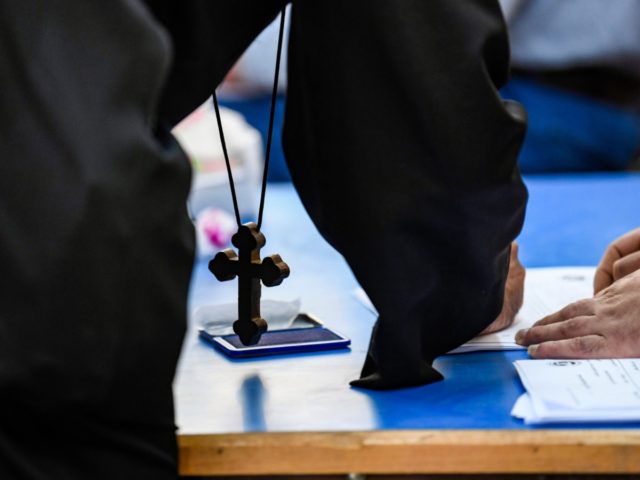Archbishop Bernard Hebda of St. Paul and Minneapolis has asked the priests and deacons of the archdiocese to “abstain” from voting in the upcoming presidential primaries, saying that voting “could be seen as ‘partisan’ political activity.”
In an email circulated by KSTP-TV, Archbishop Hebda said that the entire Minnesota Catholic Conference has asked that clergy refrain from voting in the “Super Tuesday” Democrat primaries that will be held on March 3.
“Minnesota’s presidential primary is a ‘closed’ party nominating primary meaning it is open only to people who align with the party,” the archbishop notes. “One has to attest that one agrees with a party’s principles to vote in the party primary.”
The archbishop’s principal concern seems to be the possibility that information regarding priests’ participation in the primary may become public.
“That information (though not one’s voting choice) is given to the head of each of the major political parties (four total), and though it is considered private data by the State, nothing prevents party affiliation from being made public,” Hebda writes.
“This system prevents crossover voting and protects the integrity of the primary,” he observes. “It’s why people once referred to themselves as ‘registered’ Democrats or Republicans.”
“Anyway,” he adds, “it could be seen as ‘partisan’ political activity to align oneself with a party and to vote in its primary, which the Church generally discourages clergy from doing for evangelical reasons, more so than tax ones.”
In his email, the archbishop notes that clergy voting does not compromise the Catholic Church’s tax-exempt status but could produce backlash if the information were to be publicized.
“To be clear, there is no tax prohibition on clergy voting in primaries, as clergy can endorse candidates in their individual capacities,” he states. “But the possibility that the data may become public should discourage clergy from participating.”
“If the law were different and protected privacy, maybe the calculus would change,” Hebda concludes. “But it is the opinion of the MCC that discouraging primary voting during this cycle (though not in the general election) is the prudent thing to do.”

COMMENTS
Please let us know if you're having issues with commenting.